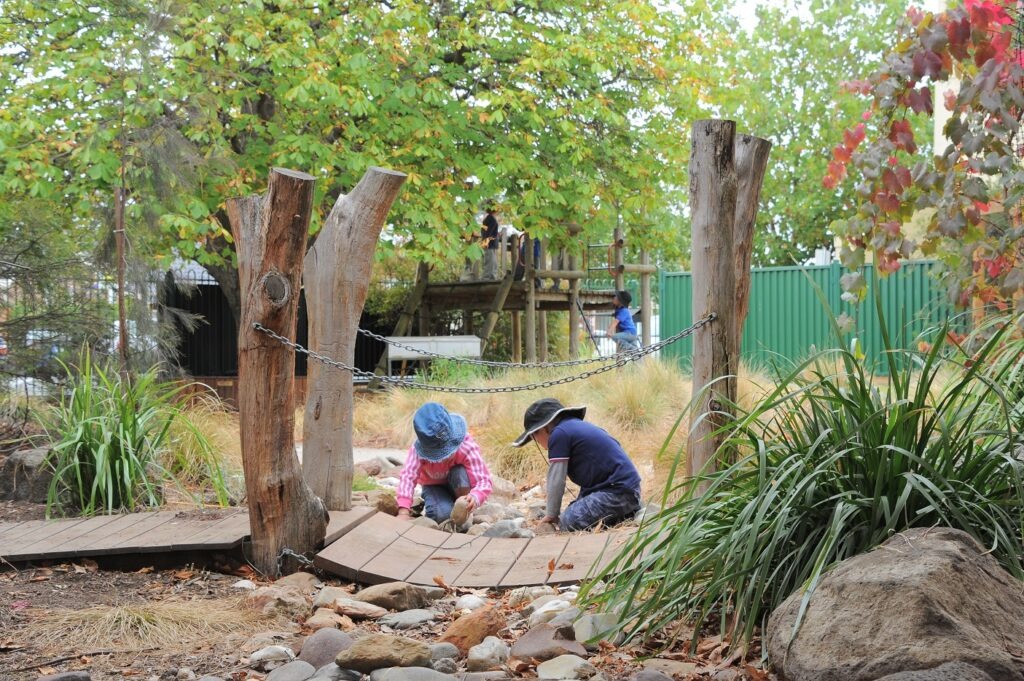The National Quality Standard (NQS) sets a national benchmark for the quality of children’s education and care services across Australia.
Services are assessed against the NQS by the state or territory regulatory authority and receive a rating for each of the seven quality areas of the NQS, as well as an overall rating.
The National Quality Framework (NQF) for early childhood education and care was agreed by all Australian governments to get better educational and development outcomes for children using education and care services.
Implementation of the NQF is guided by the Australian Children’s Education and Care Quality Authority (ACECQA).
To find out more information about the NQF and service ratings, visit the ACECQA website or ACECQA’s family focused website, Starting Blocks.
Enriching children’s lives through learning.
Respect: Holding ourselves and others in high esteem and regard. Exhibiting care, concern and consideration for the needs and feelings of others and valuing the qualities and experiences that each person brings to enrich our early years services.
Courage: Having the desire and strength to face fear and challenges, dealing with anything recognised as difficult, or painful, instead of withdrawing from it, to ensure our teaching, learning and actions achieve our goals and mission to deliver high quality early years’ services.
Collaboration: Bringing people together with a common purpose to be transformational, responsive to community needs, guided by clear goals, values and mission to deliver high quality early years’ services.
Compassion: Allowing ourselves to be moved by the suffering and experiences of others and be motivated to help alleviate and prevent suffering through exhibiting care, comfort, acceptance and inclusiveness in our early years’ services.

The programs offered at ECKA kindergartens follow the guiding principles of the Victorian Early Years Learning and Development Framework, and involve the integrations of child-directed play and learning; guided play and learning; and adult lead learning.
Outcome 1: Children have a strong sense of identity – Children feel safe, secure and supported. In order to form a strong sense of self, children need to build secure relationships first within the family and then with caring, attentive adults in other settings.
Outcome 2: Children are connected with and contribute to their world –Children develop a sense of belonging to groups and communities and an understanding of the reciprocal rights and responsibilities necessary for active civic participation. Over time and with opportunity and support, the ways in which children connect and participate with others increase. Participating in their communities strengthens children’s sense of identity and wellbeing..
Outcome 3: Children have a strong sense of wellbeing – Children become strong in their social, emotional and spiritual wellbeing. During early childhood, the foundations for social, emotional and spiritual wellbeing are laid.
Outcome 4: Children are confident and involved learners – Children develop dispositions for learning such as curiosity, cooperation, confidence, creativity, commitment, enthusiasm, persistence, imagination and reflexivity
Outcome 5: Children are effective communicators – Children interact verbally and non-verbally with others for a range of purposes.